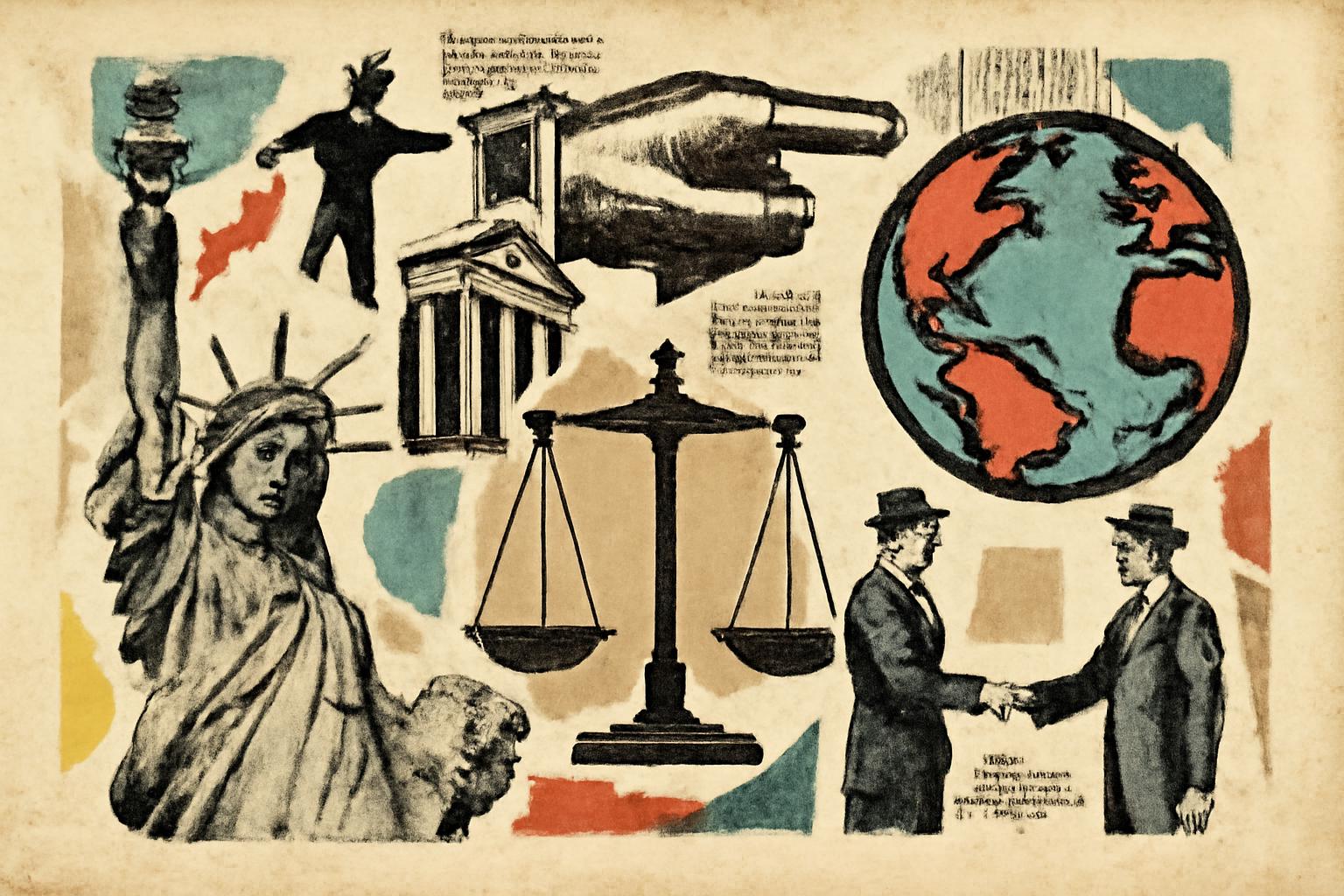A shift happened within the party: from a euro-skeptical profile to a hard anti-migration posture, accelerated by a leadership change and a climate of crisis rhetoric. The line between a governing coalition’s concerns and a populist mobilization against newcomers blurred as migration took center stage, overshadowing other policy debates. By 2025, migration and internal security loomed as the dominant concerns of voters, even as some arrivals moved into work and ordinary life. The analysis of the moment is nuanced, pointing to broader dynamics—public unease with change, energy shocks, coalition tensions, and the governing class’s struggles to manage a multi-faceted crisis—so that the rise cannot be pinned to a single slogan or a single year. Yet the banner of “refugees as root cause” did become a potent political tool, a scapegoat for a system that was failing to handle tradeoffs responsibly.
From a libertarian vantage, the drama exposes the state as the true engine of unintended consequences. When the political class uses coercive instruments—taxes to fund welfare, regulations to shape who may enter a country, subsidies that reward dependency—the public senses a loss of autonomy and fairness. This, in turn, fuels anti-state rage and the embrace of radical solutions. But the libertarian counter is simple and radical: roll back the state, reclaim spontaneous order, and allow human cooperation to emerge from voluntary choice, not from top-down coercion.
Hayek would warn that central planning of a society’s borders and migration flows is a trap. Knowledge is dispersed, local, and tacit; no parliament or technocrat can foresee all the consequences of immigration quotas, refugee schemes, or welfare entitlements linked to newcomers. The long-run result is not orderly control but distortions, perverse incentives, and a creeping erosion of individual liberty. The cure, in Hayek’s spirit, is to shrink the state’s grip, replace unpredictable interventions with predictable, rule-governed liberty, and trust price signals, decentralized arrangements, and the spontaneous adaptations of communities and markets. Migration policy should not be a single-national plan but a framework that respects property rights, contracts, and voluntary associations across borders. If borders must exist in some form to protect rights, they should arise from voluntary agreements and existing property relations, not from universalist coercion funded by taxation.
Nozick brings the rights-centered critique into sharp relief. The minimal state is justified to protect individuals from force, theft, and fraud, not to administer welfare or engineer social outcomes. Immigration rules that function as a pervasive redistribution of resources—taxing the many to fund benefits for the few or for newcomers—are a form of coercive interference with individual liberty and property rights. A society guided by Nozick would demand that admission policies respect persons as ends in themselves, not as objects to be managed by a centralized benevolence or a bureaucratic calculus. Border controls, if they exist at all, must be justified as protecting rights (primarily life, liberty, and property) rather than as instruments of national identity or social engineering. And since individuals remain the authors of their own lives, the state should not presume to rewire incentives, subsidize universal welfare, or lock people into dependentships they did not freely choose. If a migrant seeks opportunity, the path should be through voluntary exchange and private arrangements, not through state-mrewed pathways funded by coercion.
Rand adds the moral force of rational, individualist absolutism. People are ends in themselves, capable of reason, choice, and responsibility. The rhetoric of invasion and existential threat to culture collapses under Rand’s insistence that collective labels do not justify coercive plunder of others’ lives or wealth. The moral economy is one of voluntary associations, contractual relationships, and respect for the rights of every signer at the table. A genuine defense of liberty rejects state-managed narratives that cast migrants as a burden or a threat to national identity; it treats each person as an individual whose rights neither can be overridden by majority will nor by a politician’s fear. The remedy to political demagoguery is to restore the primacy of reason, property rights, and earned responsibility—dismantling welfare entitlements that reward dependence and dismantling immigration schemes that weaponize taxpayers against strangers.
Taken together, the libertarian reading of the rise and the response suggests concrete directions. End the welfare-state scaffolding that makes migrants dependent on taxpayer generosity and that fosters resentment by rewarding displacement of costs onto others. Abolish or drastically shrink the centralized apparatus that tries to micromanage who may enter and who may stay; let border decisions be constrained by respect for rights and by private arrangements rather than by universalizing coercion. Embrace decentralization: allow local and regional regimes to experiment with voluntary, contract-based cooperation, while the federal government steps back from imposing a single national mold on who belongs or who must be financed. Rebuild a rule-of-law framework that treats migration as a matter of individuals’ freedom to move and exchange, not as a political cudgel to buy conformity or to signal virtue on a paneled stage.
If policymakers want to dampen the appeal of anti-state populism, the antidote is not harsher bans or louder slogans but a freer order: fewer taxes funding more entitlements, fewer distortions in energy and markets, and a legal regime that protects the rights of every person to live, work, and trade on terms they freely choose. The most radical form of conservatism here is not nativist fear but the uncompromising defense of liberty as the ultimate social technology—the only framework under which human beings can cooperate without coercive coercion, without sacrificing the dignity of the individual for the illusion of cohesive “us.”
